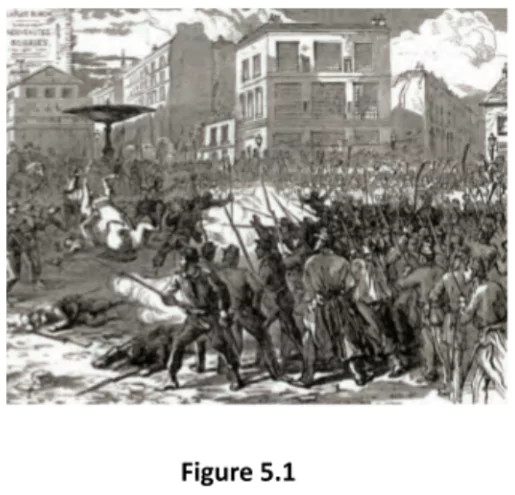![]() 19 Jul 2024
19 Jul 2024
| Bibliography: The chapter encompasses the summary of Chapter 2- Section 1 Part – 2 – IX NCERT (India and the Contemporary World – I) |
Discussing the rise of socialism in Europe and the Russian Revolution, this text delves into how socialism began to take root in Europe. The Russian Revolution, on the other hand, brought about unique societal transformations and prompted a reevaluation of economic equality and welfare of the working class and peasants. Within the scope of our current discussion, exploration of themes like transformations ushered in by the emerging Soviet government, process of industrialization, mechanization of agriculture, and rights of citizens, among other topics can be found.
Ripple Effect of French Revolution: French Revolution opened up the possibility of creating a dramatic change in the way in which society was structured.
Liberals: Liberals wanted a nation that tolerated all religions. They opposed uncontrolled power of dynastic rules and argued for a representative, elected parliamentary government subject to laws interpreted by a well-trained judiciary that was independent of rulers and officials.
Socio-Economic Change: Industrial Revolution led to changes in social and economic life, new cities came up, and new industrialized regions developed.
Socialism as Critique of Capitalism: Socialism was a well-known body of ideas by the mid-nineteenth century in Europe.
| POINTS TO PONDER
Socialism and communism both derive their origin from ideas of Karl Marx. Marx lived and propagated his ideas in Europe. But why do you think socialism was successful in Russia but failed in Europe? |
 Paris Commune of 1871: The image (Refer to Figure 5.1) portrays a scene from the popular uprising in Paris between March and May 1871.
Paris Commune of 1871: The image (Refer to Figure 5.1) portrays a scene from the popular uprising in Paris between March and May 1871. | Must Read | |
| Current Affairs | Editorial Analysis |
| Upsc Notes | Upsc Blogs |
| NCERT Notes | Free Main Answer Writing |
The uprising emerged against a background of growing discontent against the policies of the French state. The ‘Paris Commune’ was ultimately crushed by government troops but it was celebrated by Socialists the world over as a prelude to a socialist revolution.
| Related Articles | |
| Impact of French Revolution On India | Measures for India’s Social Inequality: Economic, Social, and Political Strata in India |
| AGRICULTURE | Industrialization in India |
<div class="new-fform">
</div>